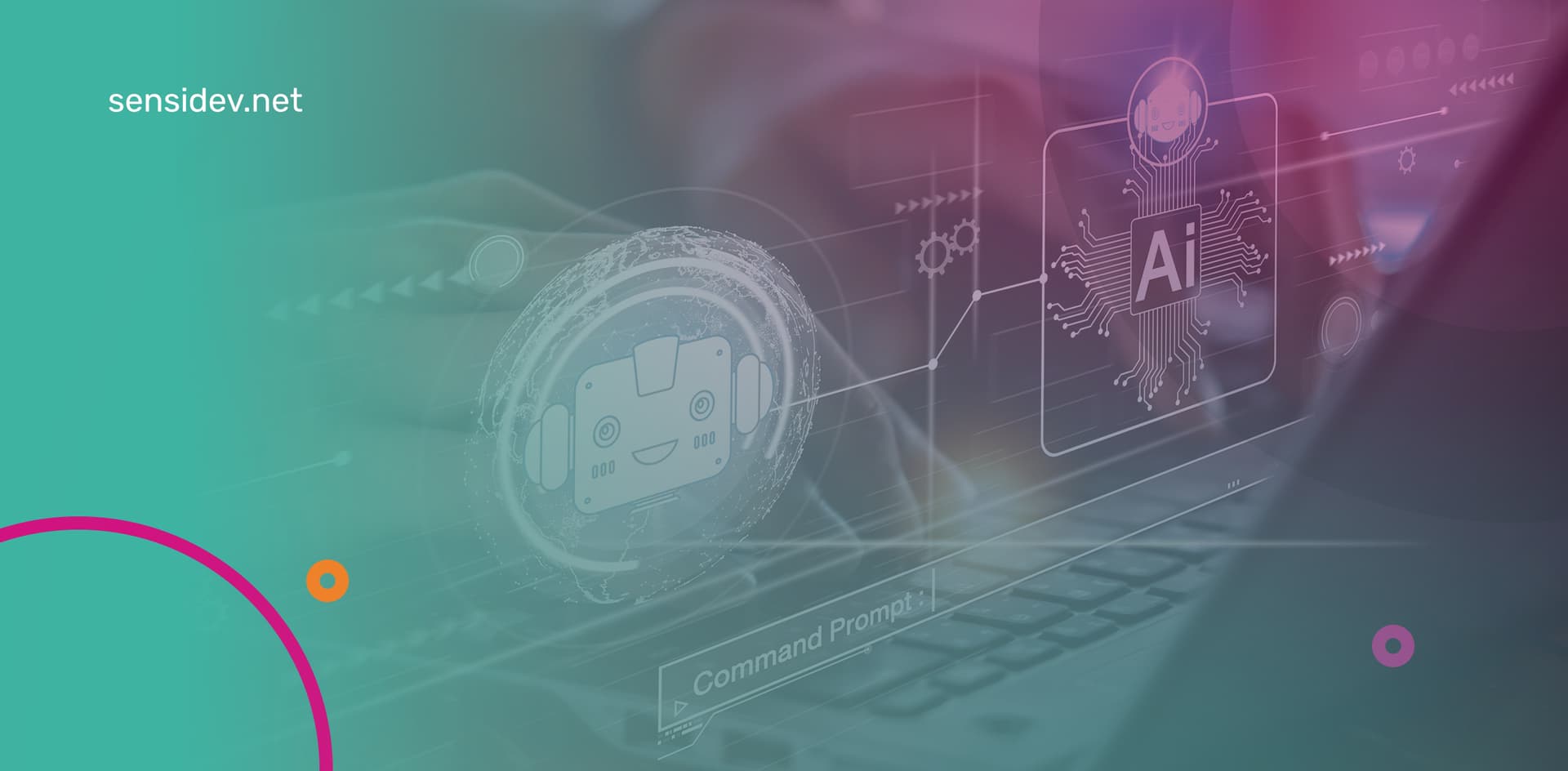
AI Integration and Optimizations for Your Business
by Ionuț Movilă • over 1 year ago • 10 min read
Today, artificial intelligence (AI) has become more than just a buzzword—it’s a powerful tool that businesses across various industries are leveraging to stay competitive. From streamlining operations to offering personalized customer experiences, AI integration is driving businesses forward in ways we couldn't have imagined just a few years ago.
The adoption of AI is no longer a luxury reserved for tech giants; it has become a necessity for companies of all sizes. Whether you’re a startup looking to scale or an established business aiming to improve efficiency, the right AI integration strategy can make a world of difference. This article dives into how AI can transform your business by optimizing processes, enhancing decision-making, and offering significant improvements in customer engagement.
Benefits of AI Integration for Businesses
Integrating AI into your business can unlock a host of benefits, making it a key component of digital transformation. Here are some of the primary advantages:
Mobile App Development for business growth
Operational Efficiency
AI can automate repetitive and time-consuming tasks, such as data entry, invoice processing, and customer support through chatbots. By eliminating manual labor in routine operations, businesses can free up their employees to focus on more strategic, high-impact tasks. This not only reduces operational costs but also increases overall productivity.
Data-Driven Decisions
One of AI’s greatest strengths is its ability to process and analyze vast amounts of data in real time. AI algorithms can sift through large datasets to identify patterns, trends, and insights that would take humans significantly longer to uncover. This empowers businesses to make smarter, faster decisions based on accurate data, which can give them a significant edge over competitors.
Enhanced Customer Experience
AI can revolutionize how businesses interact with customers. Through the use of AI-powered tools like chatbots, virtual assistants, and personalized recommendation systems, businesses can offer highly tailored customer experiences. For example, chatbots provide 24/7 customer support, answer common queries instantly, and direct customers to the right department, all while improving response times and reducing human errors.
Predictive Analytics
AI-driven predictive models allow businesses to anticipate customer behavior, forecast market trends, and adjust their strategies accordingly. Whether it’s predicting inventory needs or identifying potential new markets, AI can provide businesses with insights that help them stay ahead of the curve.
Applications of AI in Key Business Areas
AI’s potential spans across multiple business functions. Here are some of the most transformative applications:
Sales and Marketing
AI implementation for business growth
Customer Support
AI-powered chatbots and virtual assistants are revolutionizing customer service by offering real-time, accurate responses to common customer inquiries. This reduces the burden on human support agents and ensures customers receive consistent, efficient service, improving satisfaction and loyalty.
Human Resources
AI is transforming recruitment processes by automating initial screening stages, reducing bias in candidate selection, and using data to match candidates with the right roles. AI can also help with employee retention by analyzing performance data and predicting when employees may be dissatisfied or likely to leave, allowing for proactive measures.
Supply Chain Management
AI optimizes supply chain operations by predicting demand, reducing waste, and improving logistics. For instance, AI algorithms can forecast inventory needs based on historical sales data, seasonal trends, and market conditions, helping businesses avoid overstocking or stock shortages.
Finance
In the finance sector, AI helps businesses detect fraudulent activities, automate bookkeeping, and offer personalized financial advice. AI can process transactions quickly, flag unusual patterns, and help businesses comply with regulatory requirements more efficiently.
Challenges in AI Implementation
While the benefits of AI are clear, integrating it into your business is not without challenges. Here are some common obstacles companies may face:
Data Quality and Availability
AI systems rely heavily on data, and poor-quality or insufficient data can hinder their effectiveness. Ensuring that your business has access to clean, organized, and relevant data is very important for successful AI implementation.
How do companies use AI in 2024
Integration with Existing Systems
Many businesses face difficulties when trying to integrate AI into their existing infrastructure. Outdated systems may not be compatible with modern AI technologies, requiring significant upgrades or replacements, which can be costly and time-consuming.
Lack of Expertise
AI requires specialized knowledge, from data scientists and AI engineers to those who can interpret AI-generated insights. Many businesses struggle with a lack of in-house expertise, making it necessary to either invest in training current staff or hire new talent, both of which require time and resources.
Change Management
AI integration often requires a cultural shift within an organization. Employees may resist the changes AI brings, fearing that automation could replace their jobs. Effective change management strategies are essential to ensure a smooth transition, where employees understand AI as a tool to enhance their work, not replace it.

Sensidev’s Expertise in AI Integration: Case Study with a Beauty Company
Sensidev has successfully applied its AI expertise in the beauty industry, collaborating with a beauty company to develop a tailored AI-powered solution that addressed their unique business challenges. This company needed a system to streamline its inventory management, optimize marketing campaigns, and automate financial reporting.
Our team developed a powerful AI solution specifically designed for the beauty sector. One of the key features was AI-powered stock management, which allowed the company to predict inventory needs accurately using historical sales data, market trends, and seasonality. This prevented issues like overstocking or running out of stock. The system also automated order placement with suppliers based on stock levels and predicted needs, optimizing cash flow by factoring in supplier delivery times and payment terms.
In addition to inventory management, the solution included integrated marketing automation. The company could manage all marketing campaigns from a centralized platform, using AI to analyze audience behavior and create personalized content suggestions, increasing customer engagement. The system also provided real-time analytics, enabling the team to adjust campaigns on the fly, ensuring maximum return on investment (ROI).
Finally, the AI solution streamlined financial processes, integrating data from sales, marketing, and inventory systems to provide a holistic view of the company’s financial health. Automated reporting reduced the manual effort required and minimized the risk of human error, ensuring compliance with financial regulations. Thanks to this comprehensive AI integration, the beauty company enhanced operational efficiency, improved decision-making, and significantly boosted its market competitiveness.
Key Considerations for AI Integration in Your Business
For businesses looking to integrate AI, there are several key considerations to ensure success:
Start Small
Begin by identifying areas of your business where AI can make the most immediate impact. This allows you to test AI technologies on a smaller scale and address any implementation issues before expanding.
Focus on Data
Ensure that your business has access to high-quality data. Invest in data cleaning and organization to ensure that your AI systems have the information they need to deliver accurate results.
Invest in Talent
Hiring AI specialists or partnering with AI-focused agencies like Sensidev is esential. A skilled team can guide you through the integration process, helping you avoid common pitfalls and ensuring that your AI initiatives align with your business goals.
Prioritize Security
AI systems often process sensitive data, making them a target for cyberattacks. Ensure that your AI infrastructure is secure and compliant with relevant regulations, such as GDPR, to protect your business and customer data.
Revolutionizing Industries with AI: A Game-Changing Transformation
AI integration offers businesses an incredible opportunity to optimize operations, make data-driven decisions, and enhance customer experiences. While the path to AI adoption may come with challenges, the long-term benefits far outweigh the initial hurdles. By starting small, focusing on data quality, and investing in the right talent, businesses can unlock the full potential of AI.
Sensidev has extensive experience in guiding businesses through AI integration, ensuring that the technology aligns with company goals and delivers measurable results. As the business world becomes increasingly digital, integrating AI is not just an option—it’s a necessity for staying competitive in the market.
Ready to elevate your digital presence with cutting-edge solutions? Choose Sensidev for expertise that delivers results!
Contact us today to discover how we can transform your vision into reality! Let’s innovate together!
Connect with us:
Visit us at: Mareşal Alexandru Averescu Str. no. 9, Timișoara, Romania
Artificial Intelligence News

Empowering Business Growth Through Strategic AI Implementation: Insights from Sensidev
by Ionuț Movilă • over 1 year ago• 7 min read

How do companies use artificial intelligence in 2024
by Lucian Corduneanu • over 1 year ago• 10 min read